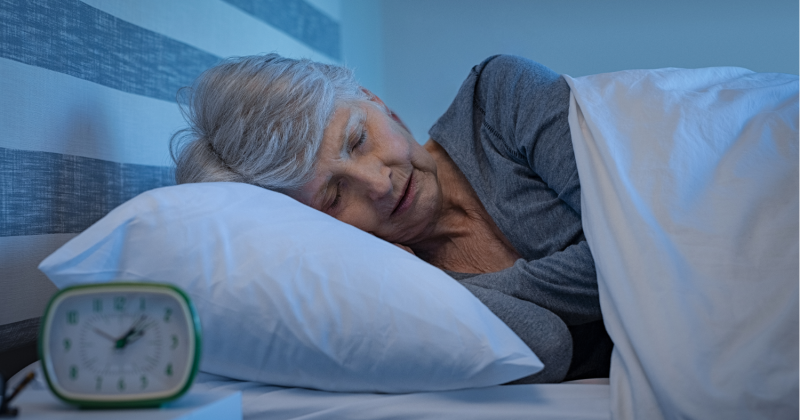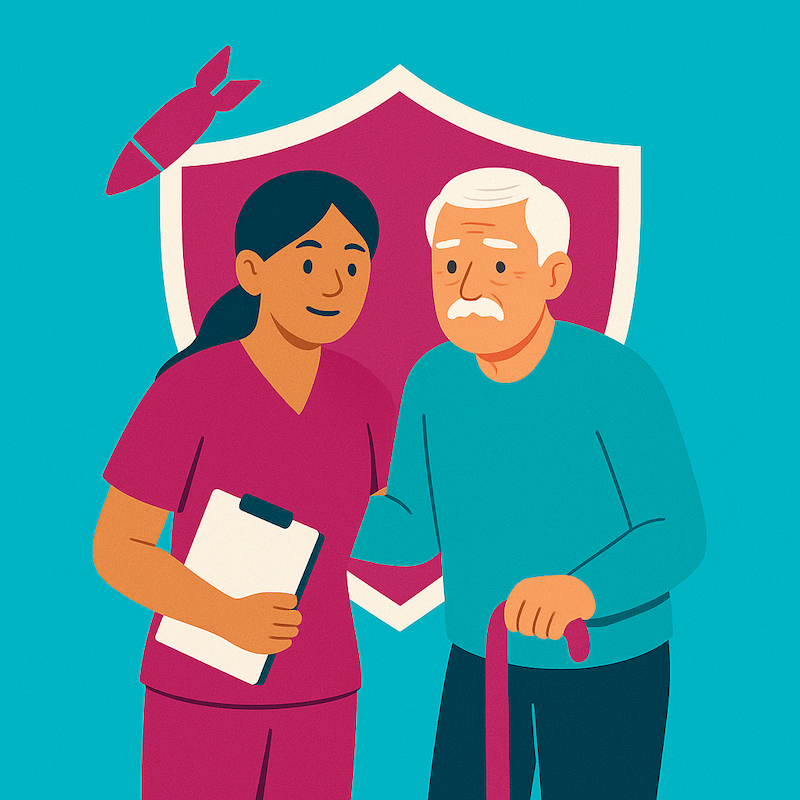Promoting Good Sleep and Managing Sleep Disturbances in Elderly Patients: A Comprehensive Guide
iSavta | 28.01.2024

Adequate sleep is essential for maintaining good health and overall well-being, and this is particularly true for elderly individuals. Unfortunately, many seniors struggle with sleep disturbances, which can have a significant impact on their quality of life. In this article, we will explore various strategies to promote good sleep and effectively manage sleep disturbances in elderly patients.
Understanding Sleep Changes in the Elderly
Before diving into the strategies, it's crucial to understand the natural changes that occur in sleep patterns as we age. As individuals grow older, their sleep architecture undergoes alterations. Older adults tend to experience lighter and less restorative sleep, frequent awakenings during the night, and an increased tendency to take naps during the day. Additionally, the circadian rhythm, the internal body clock that regulates sleep-wake cycles, may also shift, leading to an earlier bedtime and waking up earlier in the morning.
Promoting Good Sleep
Establish a Consistent Sleep Routine: Encourage elderly patients to establish a regular sleep schedule by going to bed and waking up at the same time every day. Consistency reinforces the body's internal clock and helps regulate sleep patterns.
Create a Sleep-Friendly Environment: Ensure that the bedroom is comfortable, quiet, and dark. Invest in a supportive mattress and pillows and consider using blackout curtains or a sleep mask to block out external light. Keeping the room at a cool temperature and using white noise machines can also aid in promoting better sleep.
Encourage Physical Activity: Regular exercise during the day can significantly improve sleep quality. Encourage elderly patients to engage in physical activities they enjoy, such as walking, swimming, or yoga. However, it is important to avoid vigorous exercise close to bedtime, as it may have a stimulating effect.
Limit Stimulants and Napping: Advise patients to limit their consumption of caffeine, nicotine, and alcohol, as these substances can disrupt sleep patterns. Additionally, discourage daytime napping or recommend short power naps of no more than 30 minutes to avoid interfering with nighttime sleep.
Promote Relaxation Techniques: Encourage elderly patients to engage in relaxation techniques before bed, such as deep breathing exercises, meditation, or listening to calming music. These practices can help reduce anxiety and promote a state of relaxation conducive to sleep.
Managing Sleep Disturbances
Address Underlying Health Conditions: Sleep disturbances in the elderly can be linked to various medical conditions, such as sleep apnea, chronic pain, or restless leg syndrome. It is crucial to identify and treat any underlying health issues to improve sleep quality. Consultation with a healthcare professional is recommended for appropriate diagnosis and treatment.
Minimize Environmental Disruptions: Reduce external factors that may disrupt sleep, such as excessive noise or light. Encourage the use of earplugs, eye masks, or white noise machines to mitigate disturbances.
Enhance Sleep Hygiene: Educate elderly patients about the importance of maintaining good sleep hygiene. This includes avoiding stimulating activities (e.g., using electronic devices) before bed, establishing a relaxing bedtime routine, and ensuring the bedroom is solely associated with sleep and intimacy.
Cognitive Behavioral Therapy for Insomnia (CBT-I): CBT-I is an evidence-based approach for managing insomnia. It involves identifying and challenging negative thoughts and behaviors related to sleep, developing relaxation techniques, and implementing strategies to improve sleep habits. Referring patients to a sleep specialist or therapist trained in CBT-I can be highly beneficial.
Medications as a Last Resort: Medications for sleep should be used sparingly and under the guidance of a healthcare professional. Sleep aids can have side effects and may not address the underlying causes of sleep disturbances. Non-pharmacological approaches should be prioritized whenever possible.
Conclusion
Promoting good sleep and managing sleep disturbances in elderly patients requires a comprehensive approach that addresses lifestyle factors, sleep hygiene, and potential underlying health conditions. By following these strategies, healthcare professionals and caregivers can significantly improve the sleep quality and overall well-being of elderly individuals, enhancing their quality of life in the process.











